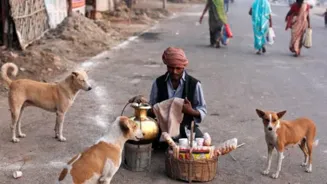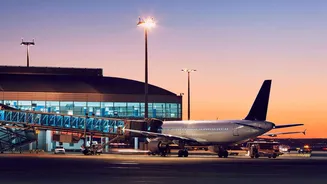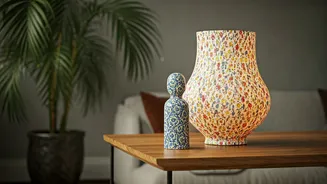India’s streets have always had two constant companions, people and dogs. For thousands of years, the Indian Pariah, or Indie dog, has walked alongside us: guarding homes, cleaning up food scraps, and offering
unconditional loyalty. In Hindu tradition, dogs are considered sacred as the devoted companions of Lord Bhairava, an incarnation of Lord Shiva.
And yet, in modern India, this ancient bond is fraying. Social media is littered with polarising narratives, reports of dog bites on one side, disturbing videos of dogs being beaten or killed on the other. The result? A deepening mistrust between humans and the very animals who have shared our streets for millennia.
As PFA (People for Animals) founder Maneka Gandhi says, “Unless one has loved or lived with an animal, his heart is not whole, and those who refuse to simply just co-exist are joyless.” Coexistence is not a romantic ideal, it’s the only sustainable path forward for both humans and community animals.
Here’s how we can start making it happen.
1. Support Sterilization and Vaccination Drives
The most effective way to prevent overpopulation and reduce aggression in community dogs is through sterilization and vaccination. Healthy, vaccinated dogs are not a threat — they’re allies in controlling disease. Every residential society should take responsibility for ensuring their local dogs receive both.
2. Create Designated Zones for Responsible Feeding
Hunger breeds desperation. Well-fed dogs are calmer, healthier, and less likely to roam into unsafe areas. Instead of banning feeding, RWAs should set up dedicated feeding spots away from building entrances or busy roads. This keeps the process safe, clean, and predictable for both animals and humans.
3. Adopt, Don’t Shop
The Indian Pariah is a hardy, intelligent breed perfectly adapted to our climate. Yet, pet shops still sell imported breeds that often suffer in Indian conditions. By adopting Indies, we reduce abandonment, curb unethical breeding, and give deserving animals a home.
4. Educate the Next Generation
Children learn empathy when they are taught to respect life — all life. Schools, parents, and communities should instill in them an understanding of animal behaviour and the value of compassion. A child who grows up caring for animals grows into an adult who respects coexistence.
5. Launch Rabies Awareness Drives
Fear of rabies is one of the biggest drivers of hostility toward community dogs. Most people don’t know that a vaccinated dog cannot transmit rabies. Local bodies, NGOs, and RWAs should hold awareness sessions, distribute educational material, and visibly mark vaccinated dogs with collars or tags to reassure the public.
Coexistence doesn’t happen overnight. It’s built on small, consistent actions, sterilizing one dog, feeding in one safe spot, teaching one child, correcting one misconception. But multiplied across a city, these actions can create neighbourhoods where every being, human or canine, feels safe.
It’s time we stop seeing community animals as a problem to be removed, and start seeing them as partners in the shared life of our streets.














